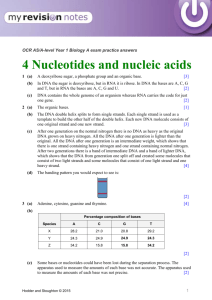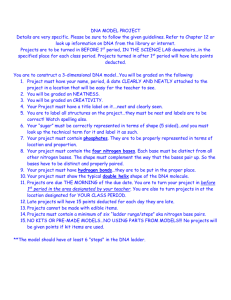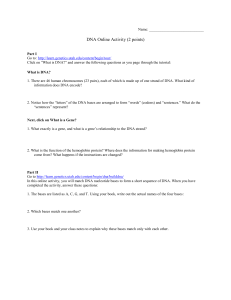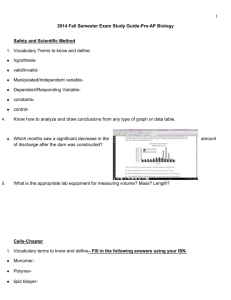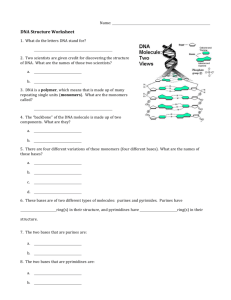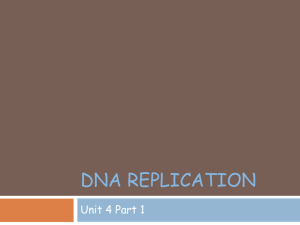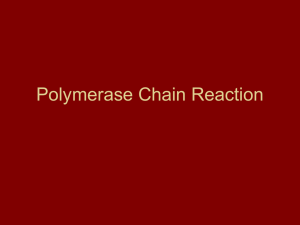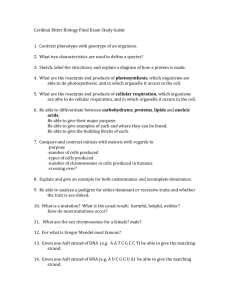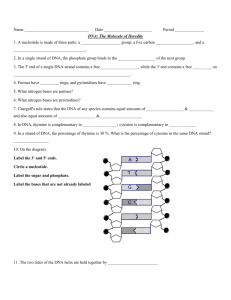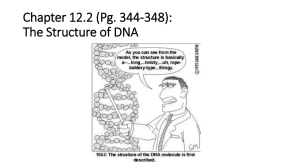Exam practice answers 8
advertisement
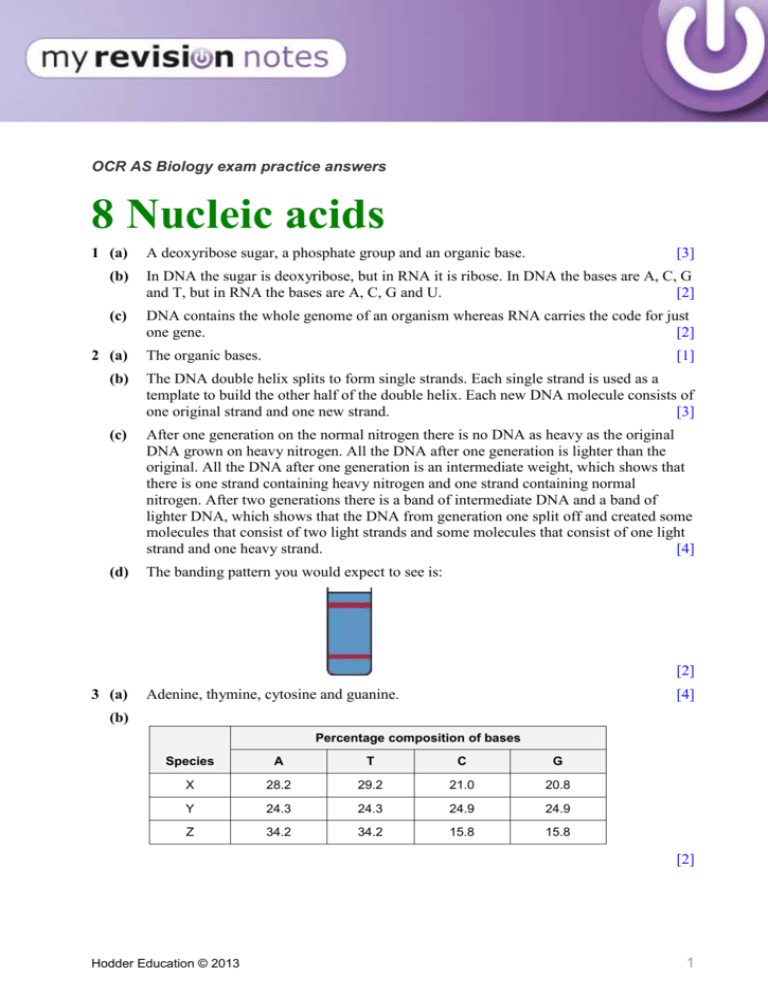
OCR AS Biology exam practice answers 8 Nucleic acids 1 (a) A deoxyribose sugar, a phosphate group and an organic base. [3] (b) In DNA the sugar is deoxyribose, but in RNA it is ribose. In DNA the bases are A, C, G and T, but in RNA the bases are A, C, G and U. [2] (c) DNA contains the whole genome of an organism whereas RNA carries the code for just one gene. [2] 2 (a) The organic bases. [1] (b) The DNA double helix splits to form single strands. Each single strand is used as a template to build the other half of the double helix. Each new DNA molecule consists of one original strand and one new strand. [3] (c) After one generation on the normal nitrogen there is no DNA as heavy as the original DNA grown on heavy nitrogen. All the DNA after one generation is lighter than the original. All the DNA after one generation is an intermediate weight, which shows that there is one strand containing heavy nitrogen and one strand containing normal nitrogen. After two generations there is a band of intermediate DNA and a band of lighter DNA, which shows that the DNA from generation one split off and created some molecules that consist of two light strands and some molecules that consist of one light strand and one heavy strand. [4] (d) The banding pattern you would expect to see is: [2] 3 (a) Adenine, thymine, cytosine and guanine. [4] (b) Percentage composition of bases Species A T C G X 28.2 29.2 21.0 20.8 Y 24.3 24.3 24.9 24.9 Z 34.2 34.2 15.8 15.8 [2] Hodder Education © 2013 1 (c) Some bases or nucleotides could have been lost during the separation process. The apparatus used to measure the amounts of each base was not accurate. The apparatus used to measure the amounts of each base was not precise. [2] Hodder Education © 2013 2
